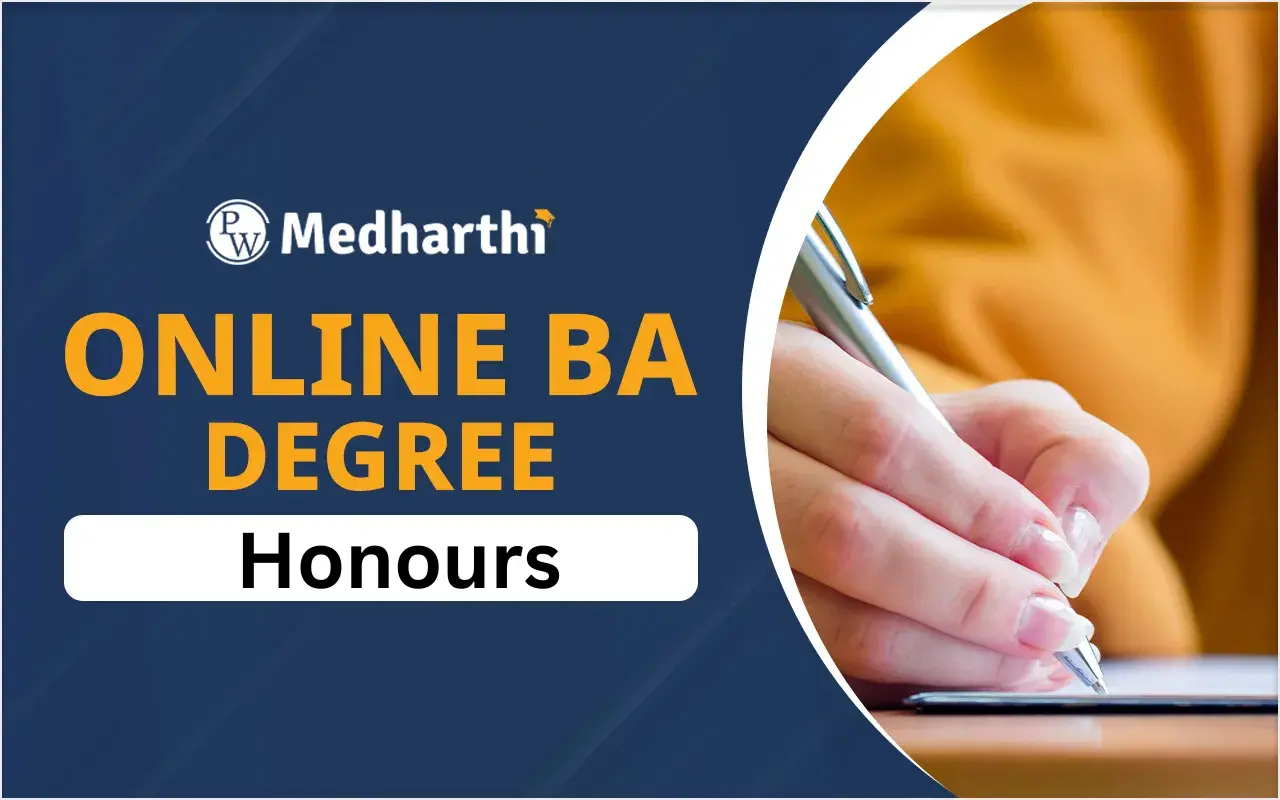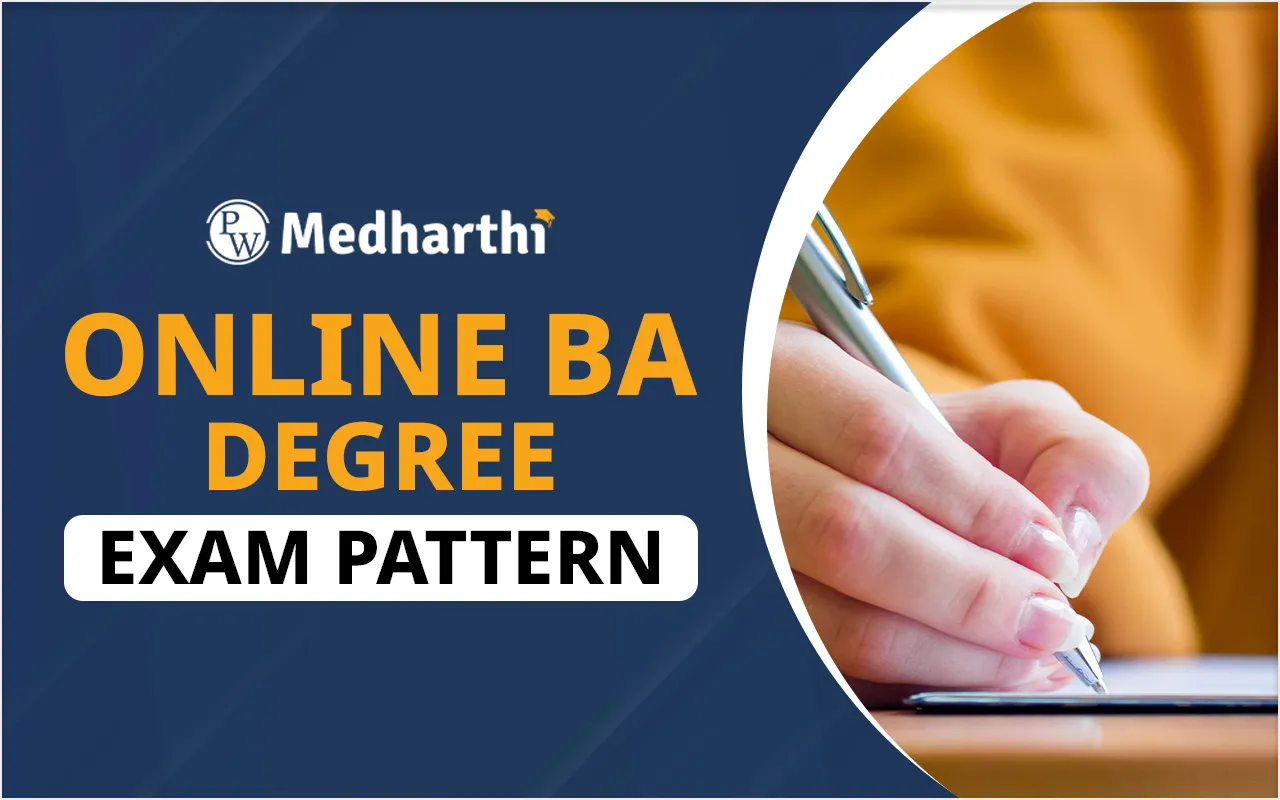
Which Degree is Best for Journalism? Journalism is a dynamic and ever-evolving field, with a growing demand for skilled professionals who can effectively report, write, and communicate information across various platforms. Whether it's print, broadcast, or digital media, a degree in journalism provides a solid foundation for aspiring journalists.
However, with numerous specializations and degree options available, choosing the best one for your career goals can be challenging. This article will explore the top degrees in journalism, the various journalism courses after 12th, eligibility criteria, and even online course options.Top Degrees for a Career in Journalism
Several degrees can prepare you for a career in journalism, each with its unique focus and specialization. Here are the most common and widely recognized journalism degrees:1. Bachelor of Journalism (BJ)
A Bachelor of Journalism (BJ) is a focused degree that offers a strong foundation in the essential skills of journalism. It covers a range of topics such as news writing, editing, reporting, ethics, and multimedia journalism. This degree is best suited for individuals who want a direct and specialized route into the field.- Duration: 3 years
- Key Subjects: News writing, Editing, Media Law, Public Relations, Broadcast Journalism
- Best For: Aspiring journalists interested in print, television, or online news media.
2. Bachelor of Mass Communication (BMC)
This degree provides a broader look at the world of mass media, including journalism, public relations, advertising, and media production. The BMC degree is versatile and offers a more holistic understanding of media and communication strategies.- Duration: 3 years
- Key Subjects: Public Relations, Advertising, Media Studies, Journalism, Communication Research
- Best For: Students interested in exploring journalism along with other aspects of mass communication like PR and advertising.
3. Bachelor of Arts (BA) in Journalism and Mass Communication
A BA in Journalism and Mass Communication is another popular choice, combining journalism education with broader communication disciplines. This degree allows for flexibility, offering students the opportunity to pursue journalism or related media fields such as content creation, digital media, or film studies.- Duration: 3 years
- Key Subjects: Media Ethics, Investigative Journalism, Media Laws, Film Studies, Corporate Communication
- Best For: Students who wish to explore various forms of media and communications while focusing on journalism.
4. Bachelor of Science (BS) in Journalism
While not as common in India, a BS in Journalism is available in some institutions abroad. This degree tends to focus more on the technical aspects of journalism, such as data journalism, analytics, and digital reporting.- Duration: 3-4 years
- Key Subjects: Data Journalism, Digital Storytelling, Multimedia Production
- Best For: Students who are keen on entering digital and data-driven journalism.
| Degree | Duration | Key Subjects | Best For |
|---|---|---|---|
| Bachelor of Journalism (BJ) | 3 years | News writing, Editing, Ethics, Broadcast | Students focused on traditional journalism fields |
| Bachelor of Mass Communication (BMC) | 3 years | PR, Advertising, Media Studies, Journalism | Those exploring various aspects of mass communication |
| BA in Journalism and Mass Communication | 3 years | Investigative Journalism, Film Studies, Media Law | Flexible students with broader media interests |
| Bachelor of Science (BS) in Journalism | 3-4 years | Data Journalism, Digital Media, Multimedia | Students focused on digital and tech aspects of journalism |
Journalism Courses After 12th
For students who have completed their 12th standard and aspire to build a career in journalism, several undergraduate courses are available. These programs equip students with the necessary skills to thrive in various media industries.- Bachelor of Journalism (BJ) – A specialized journalism degree focusing on news reporting, writing, and editing.
- Bachelor of Mass Communication (BMC) – A broader degree encompassing journalism along with other forms of mass media like advertising and public relations.
- BA in Journalism and Mass Communication – A versatile degree offering knowledge in both journalism and mass media.
- Diploma in Journalism – A shorter program (1-2 years) for students looking for a fast-track entry into the field.
- Bachelor of Media Studies – Focuses on both practical and theoretical aspects of media, covering print, television, and digital journalism.
| Journalism Courses after 12th | Duration | Specialization |
|---|---|---|
| Bachelor of Journalism (BJ) | 3 years | News writing, Editing |
| Bachelor of Mass Communication (BMC) | 3 years | PR, Advertising, Journalism |
| BA in Journalism & Mass Communication | 3 years | Media Ethics, Investigative Reporting |
| Diploma in Journalism | 1-2 years | Short, practical training |
| Bachelor of Media Studies | 3 years | Print, Broadcast, Digital Media |
Journalism Eligibility Criteria
The eligibility criteria for journalism programs generally depend on the university or college. However, the standard requirements are:- Educational Qualification: Students must have completed their 12th standard or equivalent with any stream from a recognized board. Some institutions prefer candidates with a background in arts or humanities.
- Minimum Marks: Most universities require a minimum of 50% aggregate marks in the 12th standard.
- Entrance Exams: Some reputed universities and colleges conduct entrance exams for journalism courses. Popular entrance exams include IPU CET, DUET, and XIC OET.
Online Journalism Courses
In today’s digital age, many aspiring journalists are turning to online courses for flexibility and convenience. Numerous platforms offer specialized journalism courses, ranging from beginner to advanced levels. These courses allow students to learn at their own pace and often provide certificates that can enhance career prospects.Popular Online Journalism Courses
- Certificate in Digital Journalism: Focuses on digital reporting, multimedia storytelling, and social media journalism.
- Diploma in Data Journalism: Offers insights into data-driven reporting and investigative journalism.
- MOOCs (Massive Open Online Courses): Platforms like Coursera, edX, and Udemy offer journalism courses from universities around the world, including topics such as media ethics, broadcast journalism, and investigative reporting.
| Online Journalism Courses | Duration | Platform |
|---|---|---|
| Certificate in Digital Journalism | 6 months | Coursera, Udemy |
| Diploma in Data Journalism | 1 year | edX, FutureLearn |
| Investigative Journalism MOOC | Varies | Coursera, Udemy |
|
Read Also |
|
Which Degree is Best for Journalism? FAQs
Q1. What is the best degree for journalism?
Ans. A Bachelor’s degree in Journalism or Mass Communication is considered the best for aspiring journalists, offering comprehensive knowledge in reporting, editing, and media ethics.
Q2. What courses can I pursue in journalism after 12th?
Ans. After 12th, students can pursue courses like Bachelor of Journalism, BA in Mass Communication, or Bachelor of Media Studies.
Q3. What is the eligibility for a journalism degree?
Ans. The general eligibility is passing 12th grade (10+2) from a recognized board, with some institutions requiring specific entrance exams.
Q4. Are online journalism courses available?
Ans. Yes, many universities and platforms offer online journalism courses that cover digital journalism, content creation, and media ethics.
Q5. What skills are required for a journalism degree?
Ans. Key skills include strong writing, communication, research, critical thinking, and an understanding of media technology.
Talk to a counsellorHave doubts? Our support team will be happy to assist you!

Check out these Related Articles
Free Learning Resources
PW Books
Notes (Class 10-12)
PW Study Materials
Notes (Class 6-9)
Ncert Solutions
Govt Exams
Class 6th to 12th Online Courses
Govt Job Exams Courses
UPSC Coaching
Defence Exam Coaching
Gate Exam Coaching
Other Exams
Know about Physics Wallah
Physics Wallah is an Indian edtech platform that provides accessible & comprehensive learning experiences to students from Class 6th to postgraduate level. We also provide extensive NCERT solutions, sample paper, NEET, JEE Mains, BITSAT previous year papers & more such resources to students. Physics Wallah also caters to over 3.5 million registered students and over 78 lakh+ Youtube subscribers with 4.8 rating on its app.
We Stand Out because
We provide students with intensive courses with India’s qualified & experienced faculties & mentors. PW strives to make the learning experience comprehensive and accessible for students of all sections of society. We believe in empowering every single student who couldn't dream of a good career in engineering and medical field earlier.
Our Key Focus Areas
Physics Wallah's main focus is to make the learning experience as economical as possible for all students. With our affordable courses like Lakshya, Udaan and Arjuna and many others, we have been able to provide a platform for lakhs of aspirants. From providing Chemistry, Maths, Physics formula to giving e-books of eminent authors like RD Sharma, RS Aggarwal and Lakhmir Singh, PW focuses on every single student's need for preparation.
What Makes Us Different
Physics Wallah strives to develop a comprehensive pedagogical structure for students, where they get a state-of-the-art learning experience with study material and resources. Apart from catering students preparing for JEE Mains and NEET, PW also provides study material for each state board like Uttar Pradesh, Bihar, and others
Copyright © 2026 Physicswallah Limited All rights reserved.









